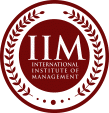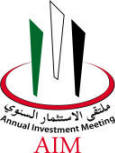Executive Education -
Research References and Resources Directory
Executive Education (Exec.Ed) refers to academic
programs at leading graduate-level business schools worldwide for executives,
business leaders and functional managers. These programs are non-credit and
non-degree granting.
KASAC: A New Paradigm for Executive
Education
Executive
White Paper
Executive Summary:
Most of the current
global academic and accreditation systems of management education require a
major update in content, delivery and evaluation methods. Although the need to
establish a set of minimum educational standards is justified, in our experience
the current accreditation systems are highly bureaucratic, outdated,
anti-competitive and inhibit innovation and advancement. IIM research revealed
that spending two to three years in a traditional MBA program is becoming more
costly and less relevant. IIM proposes a new business and management education
paradigm that is experiential, accelerated, and modular. It provides students
with a better return on their investment in time, effort and money, at the same
time providing the economy with more effective managers. The new education model
is designed for professional and organization development as an alternative to
pursing full-time academic MBA degrees.
IIM New Executive Education Paradigm
IIM Management Education Model
The main goal of IIM education paradigm is to
bring the world of business education closer to the world of business
management. This is achieved by providing new executive-driven education as
opposed to the traditional teacher-driven education. This is a major departure
from traditional academic offers in educational focus, content and delivery.
IIM’s new executive education model makes the following critical shifts:
- From theoretical education to experiential
education
- From passive (listening) to active (doing)
- From teacher-driven learning to
student-driven learning
- From just in case (generic) to just in time
(customized)
- From a teaching process to an advisory
process
- From memorizing to brainstorming
- From question-based exams to project-based
assessment
- From passing the tests to lifelong learning
- From knowledge transfer to knowledge
creation
- From competitive learning to collaborative
learning
IIM KASAC Development and Evaluation Model
IIM developed a five-dimensional model for
executive education and evaluation called KASAC. KASAC is an acronym for
Knowledge,
Analysis, Synthesis, Application and
Communication. This model is used
as the basis for IIM executive education, coaching and evaluation process. IIM
believes that for a CEO to succeed in today’s complex business environment s/he
should demonstrate mastery in all five areas:
1. Knowledge:
- Understanding of the subject-matter.
- The quality of the managerial
decision-making process.
- Understanding of the context, text, subtext
of business reports.
2. Analysis:
- Ability to identify
opportunities and diagnose challenges.
- Ability to identify critical
success factors and potential pitfalls.
- Ability to design sound
evaluation criteria for decision making
- Ability to uncover driving
forces, structure, relationships, dependencies, and situation variables
3.
Synthesis:
- Ability to design an
effective strategy/solution, taking into consideration the alignment of
external and internal forces
- Solution innovativeness and
“thinking outside the box”
- Solution feasibility
(practicability)
4.
Application:
5.
Communication:
- Ability to communicate and
present to the stakeholders at each level (articulation of management ideas,
professional documentation, business case/report writing and presentation)
- Leadership (ability to
listen, learn, persuade, motivate and win the support of the stakeholders)
IIM Education
Emphasis
What is important?
- Critical thinking and understanding of case
studies and applied management projects
- Attention to details in analysis and
recommendations
- Ability to articulate ideas, create
proposals and support adopted positions
- Maintaining up to date knowledge on key
industry changes
What is less important?
- Memorizing theories for passing exams
How Does IIM
Management Education Compare to Traditional MBA Programs?
Although the body-of-knowledge of IIM's
management education program might be shared with leading MBA programs, all IIM
courses and projects have a customized and experiential-learning orientation
rather than generic and theoretical-learning orientation.
IIM management education programs vary substantially in learning content,
delivery and evaluation methods. There are several leading institutes offering
management course that are backed by well-respected resources, however, IIM's
Executive Education programs differ from traditional academic MBA programs in
the following aspects:
- IIM pioneered the "Executive-driven"
management education model as opposed to traditional
"Teacher-driven" education model.
- IIM management education content is
success-oriented. IIM researchers study the works of the most successful
companies, managers and influential management thinkers to identify their
best practices, critical success factors and learned lessons. IIM
consultants then incorporate research results into the management education
program to provide students with the latest and most advanced thinking from
the World’s Leading Management Gurus. Some of the names include Adams, Dell,
Drucker, Gates, Hamel, Kanter, Maslow, McKenna, Moore, Ohmae, Peters,
Porter, Nonaka, Negroponte, Shapiro, and Welch.
- IIM education emphasizes critical thinking,
problem solving and innovation far more than memorization.
- Learning assessments are project-based vs.
quiz-based
- There is a “common” body of knowledge but
there is no “fixed” body of knowledge this is because of the continuously
changing business environment (technologies, markets and organizations). IIM
courses and projects address up to date industry challenges and
opportunities.
- IIM advisors will save participant’s time
and efforts by focusing on best practices and providing sample deliverables,
checklists, decision models, templates and resources.
How Does The
Course Delivery Work?
- Each participant has an advisor as opposed
to a teacher. The advisor's role is to help facilitate the participant's
professional learning and development. In part, the advisor serves as a
guide, coach or mentor. Sometimes the advisor will validate participants’
management thinking and sometimes s/he will act as an opposition party who
will critique, question and debate their management decision making. In
either case, this is done to help the participants test and develop their
critical thinking, decision making methods and communication skills.
- All courses are a combination of seminars
and presentation materials. They provide a summary of the essential
concepts, a selection of practical case-based readings, and project work
with emphasis on critical thinking, decision making and managerial planning.
- There are no Q&A tests. Instead, the
participant is assigned a real-world application project such as developing
a new strategy or a business plan for a company of participant's choice.
Course Delivery Method
-
Customization Request: Agreeing with the
advisor on the learning focus, course expectations, type of industry/company
and assessment project
-
Reading Assignment: Understanding essential
concepts (Knowledge transfer)
-
Case-study Assignment: Management issues
analysis (Learn by example)
-
Project Assignment: Real-world best practices
application (Knowledge creation)
-
Advisor Feedback: Reviewing participant's work
and providing improvement advice (Development)
How Long Does It Take?
Each course takes 2-4 week to complete. A general
management program takes 6-12 months. The time variation depends on the
participant’s knowledge and experience.
Why Is
There A Substantial Difference In Learning Time Between IIM's Executive
Education Program And MBA Programs?
- IIM Executive education is based on the
action-learning (AL)* model. It is focused on management application rather
than academic theory, therefore it is more efficient, and takes less time to
deliver
- Executive education is targeted toward
professionals who already have professional business experience. Having a
professional context makes learning faster and more effective
- Executive education encourages the use of
past work experience in course case studies and project assignments, thus
utilizing past effort for better and quicker understanding of the subject
- IIM advisors are seasoned management
consultants who provide or guide the candidates to time-saving resources
such as checklists, templates and specialized research/work portals
White Paper Notes:
- Action Learning (AL) is a form of “learning
by doing” pioneered by Professor Reg. Revans about 50 years ago. For more
information visit IIM Management Hall of Fame at:
Reg Revan
- This paper does not address undergraduate
management education, although several of its recommendations may also apply
to undergraduate programs. The paper mainly addresses MBA and executive
level education.
- License to use IIM models is granted for
educational and commercial purposes provided that the user clearly credits
“International Institute of Management” and provides a reference to IIM
website (www.iim-edu.org).
About the Author
Med Jones is the President of International
Institute of Management (IIM). IIM is a management best practices research and
education institute. IIM has 55 universities and research partners in 40
countries. Mr. Yones is an international expert specializing in the global
digital economy, business strategy, and leadership development. For more
information about IIM, please visit
Executive Education
What are IIM White Papers?
IIM white papers provide businesses and government leaders with a list of
questions, terminology and discussion points that can be used to address
emerging challenges and opportunities. IIM white papers are not academic
research papers, they are succinct work documents designed for problem solving
and communication by the leadership team. Depending on the scope of the paper,
the document structure may include three to five sections: 1). A statement of
the problem or opportunity 2). Analysis of root causes and underlying forces 3).
Proposed solutions and 4). A checklist of best practices for solution
implementation and change management 5). Notes and resources.
Copyright License
Royalty-free license is granted for using or publishing for educational
purposes provided that the user/publisher include a clear reference to the
author(s) and International Institute of Management www.iim-edu.org (Please
include the active hyperlink for electronic publishing)
Customized programs, which are tailored for and
offered to executives of a single company, represent the fastest growing segment
of the market. Customized programs help organizations increase management
capability by combining the science of business and performance management into
specialized programs that enable executives to develop new knowledge, skills and
attitudes. Knowledge translates into the capability an organization applies to
the products and services it brings to the marketplace.
University-based executive education programs,
and customized programs in particular, include serious engagement among
executives, senior business faculty and researchers who are on the leading edge
of current business thought and management theory development. It has been noted
that “executive education is the toughest classroom there is” because
time-pressed and demanding executives challenge each other in the classroom as
much or more as their professors. The programs are credited with offering unique
networking and personal career development opportunities for participants, as
well as opportunities for universities to build stronger alumni networks that
also benefit younger, traditional MBA program graduates through networking,
internships and job opportunities.
Not all observers of university-based executive
education are positive. There is some debate about the nature of business school
education as a form of professional development. Some believe that
university-based executive education has caused some business schools to "lose
track of their professional mission." This argument is made by Rakesh Khurana
among others.
By the late 1970s nearly 20 business schools in
the United States were offering some form of executive education. The science of
business also was developing at a rapid pace as faculty, such as Harvard
Professor Michael Porter and University of Michigan Professor C.K. Prahalad,
published academic papers that changed the way people thought and acted within
companies.
Professor Prahalad (6) is most notably
remembered for developing the concepts of “core competencies” and “strategic
intent.” These and other respected academic business thinkers -- Don Hambrick,
Ram Charan, David Ulrich, Michael Hammer, Gary Hamel and many others -- are the
true pioneers of executive education and the ongoing effort to facilitate wealth
creation and other new concepts aimed at making stronger businesses while
improving the welfare of the world.
Executive education further developed in the
1980s and ‘90s as the increasing pace and scope of global business demanded
higher levels of education among employees. The dot-com boom further changed the
scope of the business landscape by favoring employees and organizations that
were quick to adapt to change. As longstanding business concepts became
obsolete, continual training was necessary – but earning a degree was not.
Source Wikipedia
Executive Education: Executive Courses - Executive Training Courses
- Executive Course # 1:
How to Select and Evaluate a CEO?
- The CEO's 3 top challenges. Board of Directors (BOD) and CEO
performance evaluation. CEO strategy evaluation. CEO leadership
evaluation. CEO performance evaluation
- Executive Course # 2:
How to Evaluate the Board of Directors
- How to Evaluate the Board of Directors. Corporate Governance Best
Practices
- Executive Course # 3:
Executive Compensation Best Practices
- Executive Compensation Best Practices - A guide to the Board
of Directors. CEO compensation best practices. CEO performance metrics.
Harvard Balanced Scorecard (BSC) and CEO compensation.
- Executive Course # 4:
CEO Succession Planning
- Succession Planning Best Practices - A Guide to the Board of
Directors
- Executive Course # 5:
Harvard Balanced Scorecard
- Strategy formulation. Strategy execution. Causes of strategy
failures. Strategy alignment and performance measurement. Balanced
scorecard implementation limitations and pitfalls.
- Executive Course # 6:
Top 6 CEO Strategy Questions
- The top 6 questions every board must ask its CEO. The top 12
questions all CEOs must ask their CXOs.
- Executive Course # 7:
CEO Strategy Metrics
- Insights. Management Model Best Practices. Key performance
indicators (KPIs). Leading and lagging indicators. Financial metrics,
operational metrics and shareholder value. Closed-loop performance
measurement. Alignment tree and performance metrics. Benchmarking
resources
- Executive Course # 8:
Global Leadership Challenge - Nissan Case Study
- Leading a global organization. The decline of Nissan Motors -
A case study. Nissan partnership with Renault and Carlos Ghosn as COO.
The leadership challenges. The leadership and global cultural gap. the
Japanese management style. Ghosn's turnaround and cost cutting strategy.
Critical success factors. Ghosn's change management principles. IIM
change management framework.
- Executive Course # 9:
Restructuring and Turnaround Best Practices
- Top internal and external causes of performance decline. IIM
Turnaround methodology. Turnaround performance metrics. 9 key turnaround
areas. Turnaround plan and strategic options. Turnaround lessons
- Executive Course # 10:
CIO and Sarbanes Oxley Act (SOX) Compliance Project
- Governance, Sarbanes Oxley Act (SOA), CEO & CFO. SOX Section 302 &
404. SOX Compliance Project: Discovery, assessment, remediation and
testing. SOX and IT best practices COSO, COBIT and GCC. SOX compliance
project methodology & timeline. SOX compliance project's deliverables.
- Executive Course # 11:
Executive Ethics & Social Responsibility
- The social responsibility of business. Executive ethics and
stakeholders relationship management. Do ethics pay?. Unethical/Illegal
behavior. The problems of ethics. The solution to ethical problems.
Ethical decision-making: The 5 ethical tests. Professional ethics best
practices. IIM’s views on social responsibility. Corporate citizenship
example. IIM standards of professional conduct.
|
Wall Street
Executive
Resources





 |






